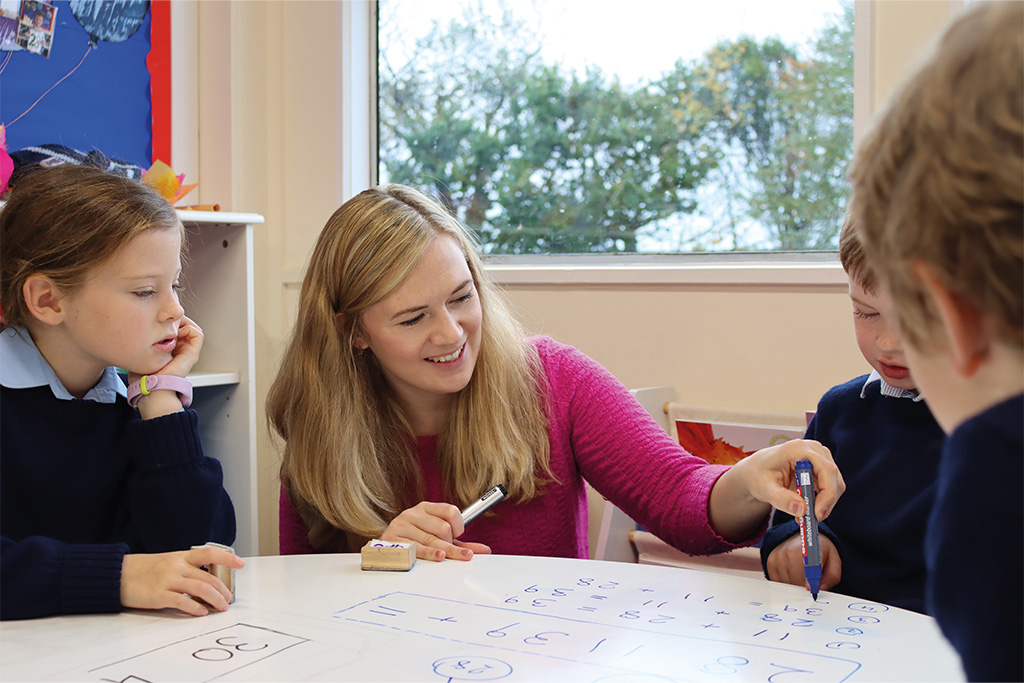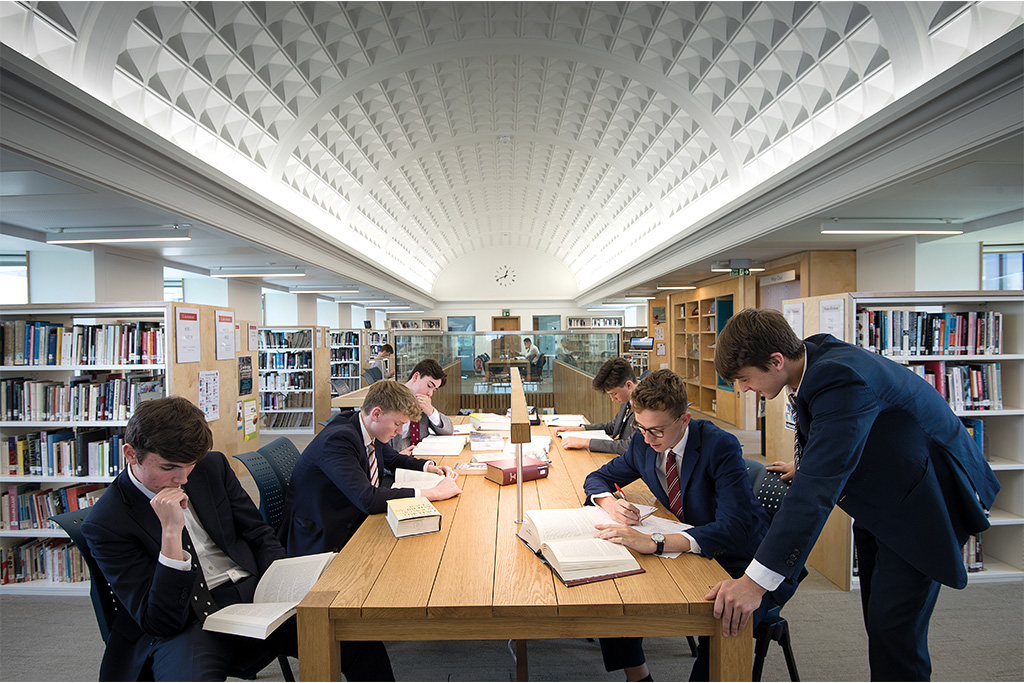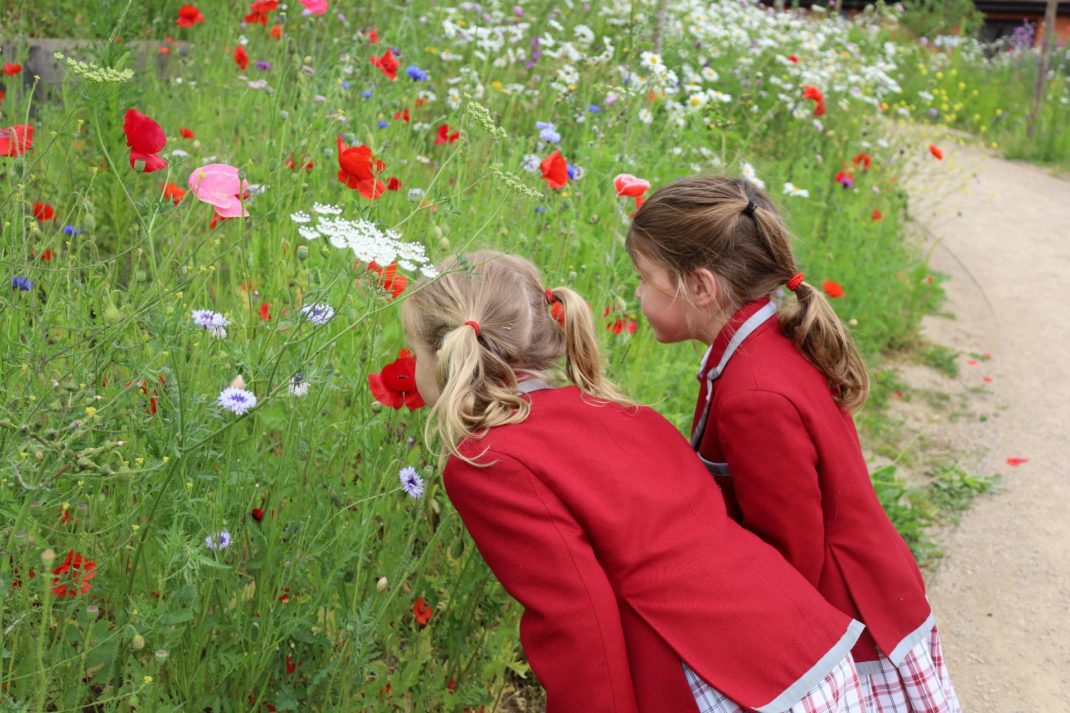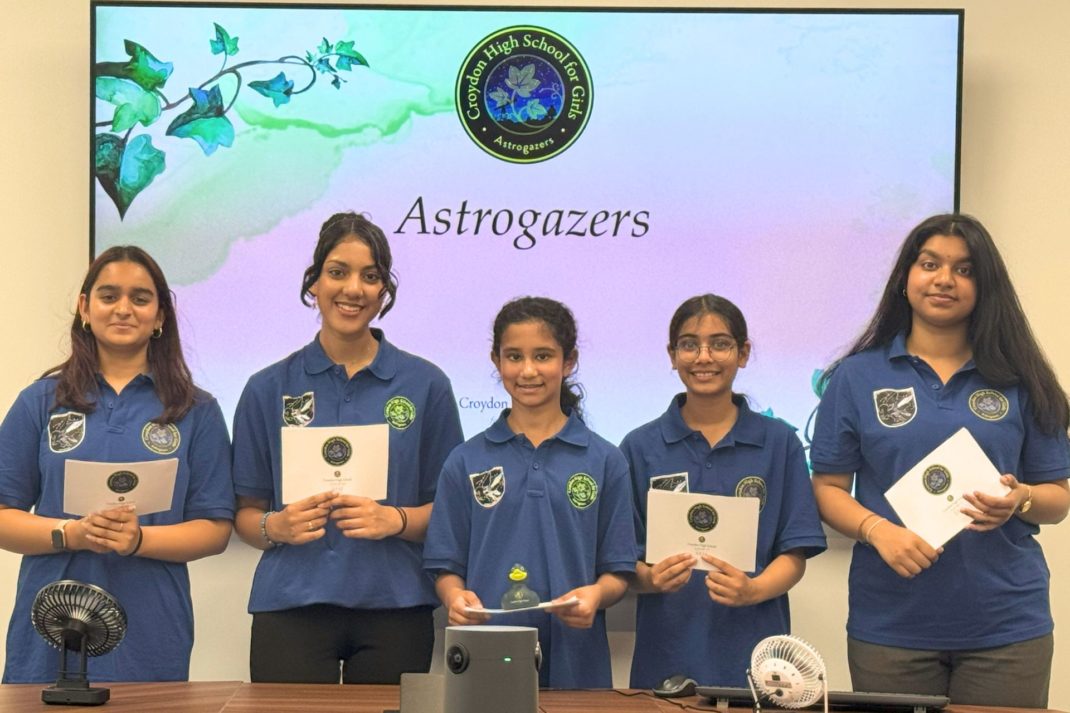Marmite Maths
By
3 years ago

It used to be the subject we loved or hated, says Emma Reed – but new approaches are adding up to renewed interest.

Maths can be one of those subjects that provokes a strong reaction: people either love it or hate it. That feeling often continues well into adulthood. Many of us can recall learning by rote and wondering how the more abstract concepts had any application to real life (guess which camp I was in?). However, teaching methods have moved on and these, along with advances in technology, mean that pupils are not only gaining confidence in maths, they are excelling.
It’s not just a question of being able to use algebra to solve a problem or correctly interpret a graph. Children can achieve excellent maths grades in GCSE or A-level, but many leave school with a poor level of financial literacy, unable to apply maths to financial contexts in the real world. While financial education was introduced into the national curriculum in 2014 in secondary schools, its application has been sporadic.
Abigail Foster, an ACA qualified accountant runs Elent, a financial education platform. She provides workshops in schools currently aimed at Years 10 to 13 including schools such as Putney High School, Walhampton School and the TVLP (the Thames Valley Learning Partnership of state and independent schools).
Foster covers pensions, savings, student loans and payslips, and says: ‘I think it’s shocking that often the first time we ever see a payslip is when we receive our own.’ Instead, she believes that with the right financial education comes empowerment, which she sees as particularly significant when it comes to transparency and the gender pay gap. Foster is conscious, too, of the need to pick up the conversation on matters such as cryptocurrency. It’s all about equipping young people with the financial life skills they need.

Back in the classroom, Alex Miller, head of maths at Merchant Taylors’ School, highlights the big shift that has evolved in teaching his subject. ‘One of the biggest features from the past 10 years of education,’ says Miller, ‘is the move away from the focus of just being able to regurgitate the skills they’ve learned to a more problem-solving approach.
‘I think that’s vitally important, not just for qualifications, but for their futures as well. We want to develop the problem solvers and leaders of the future.’
One of the challenges Miller sees is persuading the boys of the importance of writing things down. ‘The nature of primary school maths is based a lot around mental arithmetic, so they think success in maths is to be able to do calculations mentally and quickly. They can often hit a low point in maths around the middle years as the nature of maths changes and they’re not used to writing their working down.’
The other big shift Miller notes is the use of technology in maths, something he was keen on prior to the pandemic making it a necessity. The use of the touchscreen and the stylus has revolutionised the ability to do maths efficiently on a screen. Applications such as OneNote ensure that all resources and worksheets are easily available for everyone to access and progress.
Where technology really comes into its own, he says, is being able to demonstrate maths in motion, whether it’s a graph being drawn or an algebraic equation. This view is echoed by Katie Gale, head of maths at Belhaven Hill School. ‘We’ve had interactive whiteboards and we’ve moved across to Apple TVs now. When you can demonstrate things visually such as reflections, pupils can find that invaluable. We’ve got iPads in school and the children can use the Apps to practice times tables.’
Gale also comments on the importance of problem-solving skills, and to this end, she finds that lessons are much more discursive.‘We do a lot of talking where pupils learn to explain why they think their answer is right. I try to lead by investigation and relate things to the world outside. We’ll go outside, find circular shapes and work on area and circumference.’
Nell Bond, head of Key Stage 2 maths at King’s Ely also highlights that there’s been a shift in the subject to emphasise an understanding of why methods make sense.
‘Unpicking the abstract to make it concrete,’ says Bond, ‘ensures our learners feel more confident and better equipped to understand the application.’ There’s an emphasis on fun. Lessons start with ‘warm-ups.’
‘We can all get quick wins at the start of a lesson. We award merits for people who outperform prior work, so goals are tailored to individuals rather than setting general standard goals.’ There’s even a competition for ‘favourite mistakes.’ ‘Students view a variety of mistakes, work out what the misconception was and then vote for their favourite.’
Clubs seem to be integral in fostering enthusiasm and a level of excellence at some schools. ‘If we can grab the boys when they’re young and interested in maths, then they will follow through with those clubs,’ says Miller. ‘We want it to be a social, relaxed, enjoyable space for them to come and enjoy some problem-solving puzzles.’ Recently, they had a boy who did a presentation on the mathematics behind surviving Squid Game!

Tonbridge School entered nine teams in the Trinity Maths Competition this year who all performed well with one coming top. Head of Maths James Ashton explains that Tonbridge has a very active maths club (Arcana) where pupils are motivated and keen to push themselves. He’s a big believer in pupils taking responsibility for their learning, taking advantage of boarding time to sit down with each other to work out and explain maths problems they are working on.
Director of Admissions Richard Burnett remarks that the calibre of maths teachers they have engenders a healthy spirit of inquiry and competition. This was the draw for one of their Year 9 pupils, described as a ‘once in a generation’ mathematician.
However, it’s easier to enthuse the naturally gifted. The key is enthusing everyone. Linked to maths, Belhaven Hill recently won the Years 7-9 category of the PA Raspberry Pi Competition with their Project Polar Bear, a waste management system. ‘My firm belief is that children are far more motivated when there’s a real-world application to what they’re doing,’ says William Pook, head of computing. ‘They understand why we’re doing maths, science and the like because we had to apply all of these on this project. It’s very empowering for them and it encourages others.
‘It doesn’t matter if they don’t succeed. It’s about the process. That is where the learning comes from.’
Many of us might wish we had had the maths teachers included here. It’s a much more collaborative process now, with teachers adapting to change and learning as much as the pupils. As Nell Bond from King’s Ely, says: ‘Maths is not a spectator sport, so we all get stuck in!’
See the listings of the schools mentioned here: Belhaven Hill, Tonbridge, King’s Ely, Putney High School, Walhampton School, Merchant Taylors’ School.



